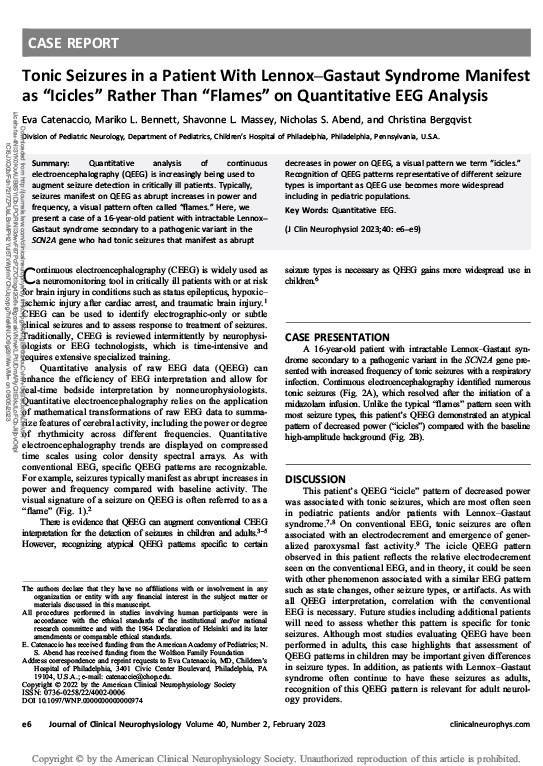Tonic Seizures in a Patient With Lennox–Gastaut Syndrome Manifest as “Icicles” Rather Than “Flames” on Quantitative EEG Analysis
February 2023
Summary:
Quantitative analysis of continuouselectroencephalography (QEEG) is increasingly being used toaugment seizure detection in critically ill patients. Typically,seizures manifest on QEEG as abrupt increases in power andfrequency, a visual pattern often called “flames.” Here, wepresent a case of a 16-year-old patient with intractable Lennox–Gastaut syndrome secondary to a pathogenic variant in theSCN2A gene who had tonic seizures that manifest as abruptdecreases in power on QEEG, a visual pattern we term “icicles.”Recognition of QEEG patterns representative of different seizuretypes is important as QEEG use becomes more widespreadincluding in pediatric populations.
Key Words:
Quantitative EEG.
(J Clin Neurophysiol 2023;40: e6–e9)

